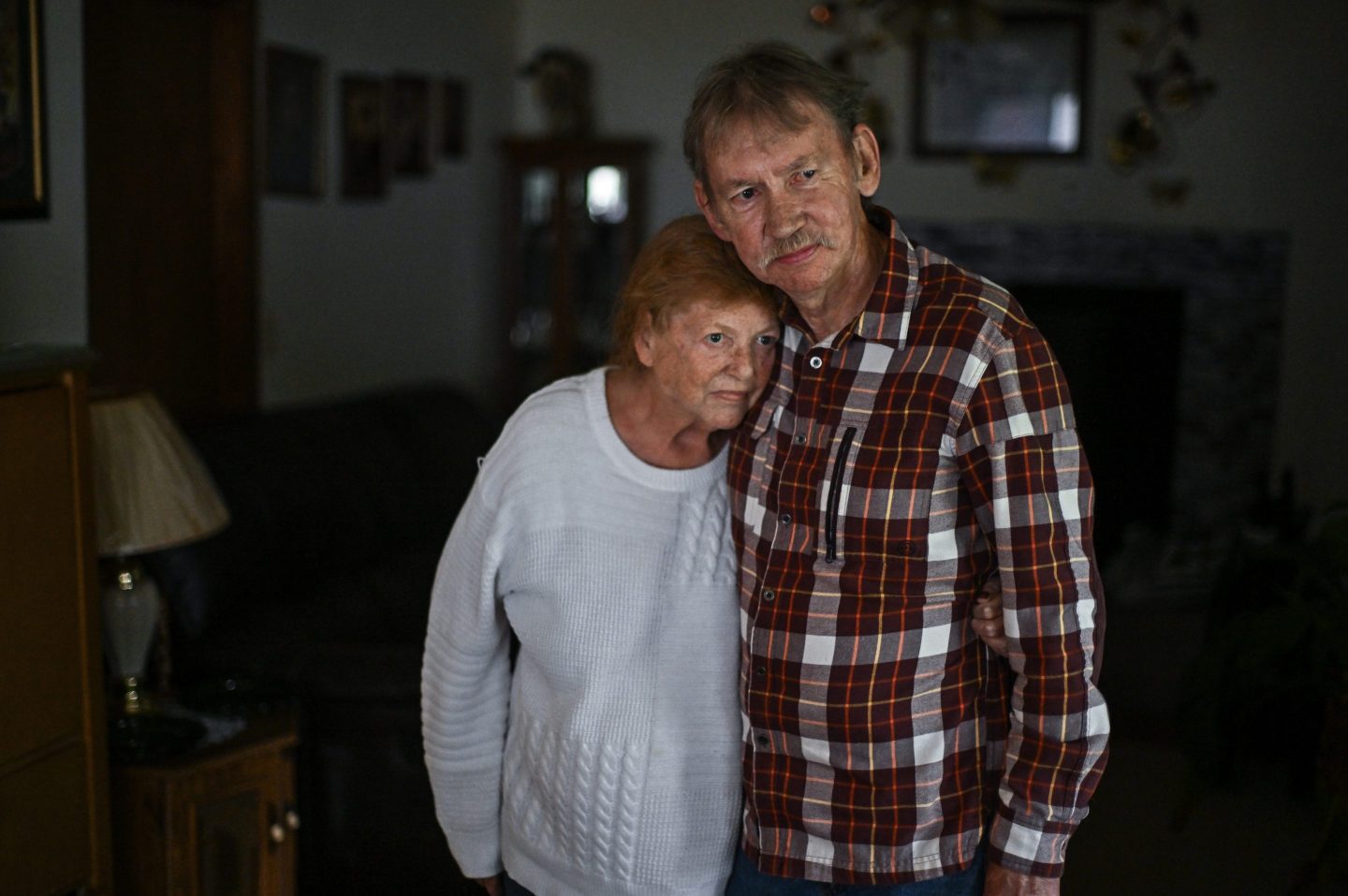Ahead of the 2016 presidential election, coal country came out in droves to support Donald Trump, who promised rural America a mining revival. Nine years later, some coal miners are saying they are in crisis because of the administration’s inaction on industry safety.
Miners on Tuesday are gathering outside the Labor Department building to protest the Trump administration’s move to indefinitely postpone the federal enforcement of a rule limiting exposure to carcinogenic silica dust particles. Miners argue increased subjection to the dust has led to an eruption of black lung, an incurable disease associated with inhaling the particles.
“The mine workers obviously take extreme interest in the passing of the silica rule, because it is our members and our workers that are being affected by silica dust exposure on a daily basis,” Erin Bates, director of communications for the United Mine Workers of America (UMWA), which represents coal miners, told Coins2Day. “Every single day that this rule is not in place means another death for a coal miner.”
UMWA president Cecil Roberts will speak at the Tuesday protest.
Black lung disease has been on the rise since the 1990s, a result of newer, shallower mining practices, particularly in Appalachia, that kick up more silica dust. Coal workers’ pneumoconiosis—or black lung disease—now impacts one in five “long-tenured central Appalachian coal miners,” according to the U.S. Department of Labor.
For Gary Hairston—a 71-year-old retired coal miner and president of the National Black Lung Association, which is organizing the protest—living with black lung for more than 20 years has meant being sidelined from recreational basketball games and from playing with his grandchildren.
“You can’t do nothing you want to do,” Hairston told Coins2Day.
White House deputy press secretary Anna Kelly said the administration is working on policies to support blue-collar workers like coal miners.
“President Trump cares deeply about unleashing America’s energy potential, as well as standing up for those who fuel our country, such as hardworking coal miners,” Kelly told Coins2Day in a statement. “Blue-collar Americans played a key role in sending President Trump back to the White House, because they know he has their back.”
The Trump administration’s relationship to coal miners
The government has acknowledged the dangers of inhaling silica dust for decades. In 1969, it passed the Federal Coal Mine Health and Safety Act, providing monthly payments for coal miners disabled by black lung, as well as to widows and dependents of workers who died of the disease. While the act was amended as recently as 2010, the Mine Safety and Health Administration (MSHA), under President Joe Biden, set an exposure limit on silica dust.
However, some mining organizations have sued the MSHA, claiming it would not be feasible to comply with the rule and that miners should instead better leverage personal protective equipment like respirators. In response to the lawsuits, the Trump administration has paused enforcement of the rule. The National Stone, Sand & Gravel Association, the organization behind one of the lawsuits, did not respond to Coins2Day’s request for comment.
An appeals court in May denied a motion from the UMWA and United Steelworkers (USW) to intervene on the rule, leaving them few other choices but to protest, Bates noted.
“We have not been able to be involved in the lawsuit whatsoever,” she said.
The coal industry has continued to shrink amid a global shift toward other forms of energy. In 2023, the U.S. Produced 578 million short tons of coal, less than half of what it produced at its 2008 peak, according to the U.S. Energy Information Administration. While 2022 saw the opening or reactivation of 40 coal mines, 151 mines closed or were nonoperational that same year, an 18% decline from the year before.
Trump has made good on some of his promises to bolster the coal industry. The administration announced last month plans to designate 13 million acres of federal lands for coal mining, as well as funnel $625 million into modernizing coal-powered plants. The move piggybacks on an April executive order vowing to remove regulatory barriers and increase American coal exports.
After the 2024 presidential election, trade groups like the National Mining Association rallied around Trump in hopes of igniting the competitiveness of American coal. Bates said coal miners’ struggle to be heard has spanned across presidencies and political parties.
“It’s typical corporation versus worker,” she said.
Indeed, Appalachia has seen a rightward shift over the past couple of decades, a result of environmental policies threatening the mining industry. The shift is widely attributed to former Vice President Al Gore’s embrace of environmental policies, with the region historically comprising Democratic-leaning states dating back to the 1930s through the 1990s, home to several legendary party figures such as West Virginia’s Robert Byrd. This shift has coincided with Democratic leaders with roots in that era, such as West Virginia Sen. Joe Manchin (2024) and Gov. Jim Justice (2017), switching party affiliations amid the rise of Trump’s appeal. Pennsylvania, of course, emerged as the archetypal swing state of the Trump era, with blue-voting cities surrounded by a sea of red rural counties, especially its Appalachian western third.
But Hairston warns the lack of protections against silica dust will exacerbate problems in the industry by threatening a labor shortage, because younger workers in an aging workforce are now getting black lung. He argues that the repeated postponed enforcement of the silica dust rule sends the message that the administration and mining companies think workers are expendable.
“It seems like they don’t care about us,” he said.













